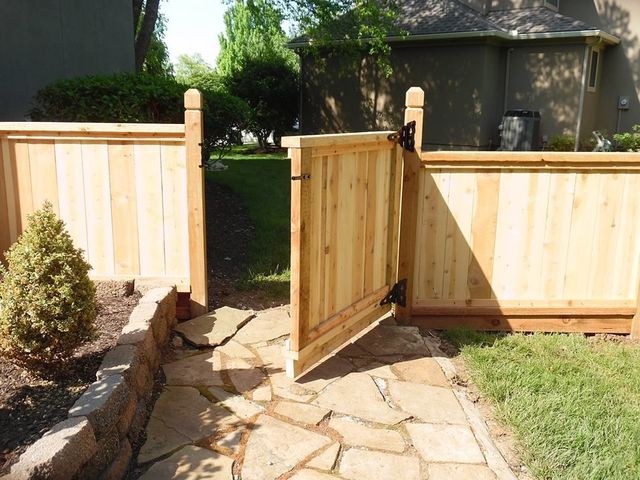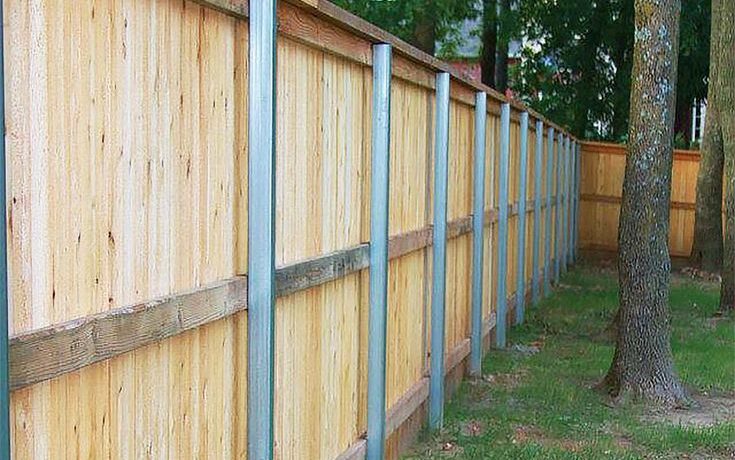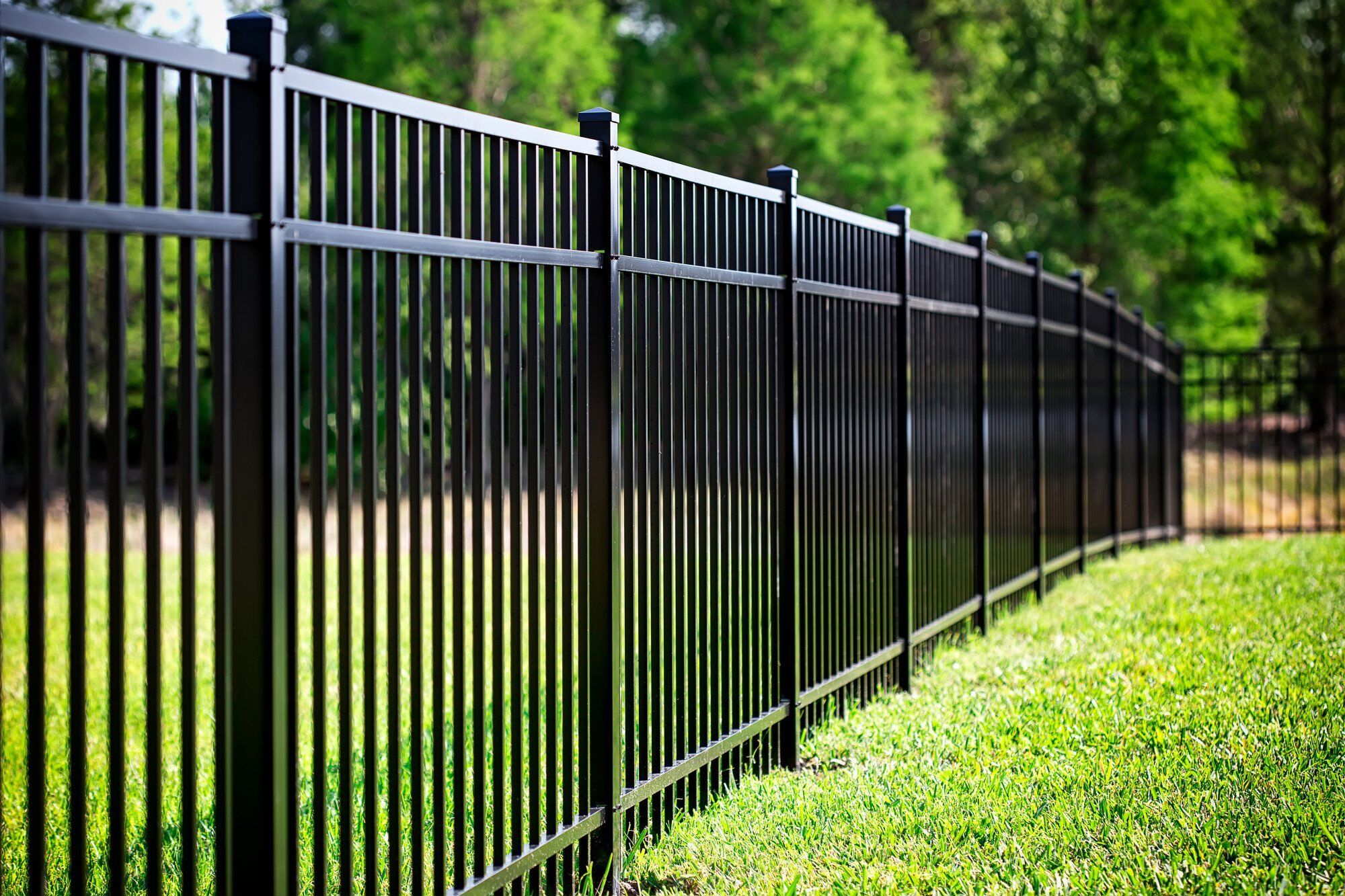All Categories
Featured
If you're taking into consideration installing a fencing around your residential or commercial property, comprehending the authorization requirements in your area is necessary. While constructing a fencing could appear like an easy do it yourself task, numerous regulations might govern its construction relying on where you live. Stopping working to obtain the correct permits can lead to fines, penalties, or also having to eliminate the fencing altogether. In this overview, we'll break down the various authorizations you may need to install a fence and exactly how to ensure your project remains certified with regional regulations.
Why Are Permits Necessary for Fence Installation? Authorizations are required to make sure that the fence you develop adheres to regional building codes, zoning guidelines, and safety and security requirements. They make certain that the fencing will not obstruct utilities, traffic flow, or produce dangers for pedestrians.
![]()
Sorts Of Permits You May Demand. Structure Permit. A structure license is the most common requirement for installing a fencing. This authorization ensures that the framework you build follow regional security codes and regulations. If your fencing goes beyond a specific elevation (generally around 6 feet), you may require to get a structure permit. The local authorities will normally examine your plans to ensure that your fencing is secure and structurally audio.
Zoning Permit. Zoning laws control land use in your area, and they often control where fences can be set up, along with exactly how tall they can be. A zoning license makes sure that your fence abides by these guidelines. For instance, your fence may require to be set back a certain range from pathways or residential or commercial property lines. Zoning policies can differ by neighborhood, so it's essential to check the details rules that relate to your location.
Homeowners Association (HOA) Approval. If your home is component of a homeowners association, you may require authorization before setting up a fencing. HOAs commonly have rigorous guidelines regarding the type, style, and products used for fences to keep a consistent look throughout the neighborhood. The HOA may need you to submit in-depth plans or request authorization before installation. Make certain you adhere to these standards to avoid prospective penalties or fines.
Specialized Permits. In some cases, you may need specialized allows based upon the area of your building or the nature of your fence. As an example, if your residential or commercial property remains in a disaster area, you may need added permits to make certain that your fencing does not block drainage or water circulation. If you intend to develop a fence near an eco protected area, you might require a special authorization to comply with environmental regulations.
![]()
Energy Easements and Utility Company Authorizations. Before mounting a fencing, you need to check if your residential property has an easement. Developing a fencing within an easement could conflict with energy upkeep or damage underground lines.
Exactly How to Determine Which Permits You Required. Talk To Regional Authorities. The primary step in establishing the authorizations required is to contact your local structure division or zoning workplace. They can give specific details regarding what permits are required for your area. Several cities have online sources or websites where you can check the requirements and even request a permit online.
Speak With a Professional Fence Specialist. A neighborhood fencing service provider is usually acquainted with the permit procedure and local policies. They can assist you browse the needs and make certain that your task is compliant. Several specialists likewise take care of the license application process in your place, conserving you effort and time.
Testimonial Your Community's HOA Standards. If you live in a neighborhood regulated by an HOA, make certain to examine their guidelines before requesting any permits. The HOA may call for details layouts, products, or height restrictions for fencings within the community. Submit your plans to them for authorization prior to proceeding.
![]()
Consequences of Not Acquiring a Permit. Setting up a fence without the needed licenses can lead to severe repercussions. Prospective buyers may wait to buy a building with an unpermitted fencing, especially if it's in offense of zoning legislations.
Verdict. Before installing a fence on your building, make sure you comprehend the neighborhood regulations and get any required permits. Building permits, zoning authorizations, HOA authorizations, and specialized allows all play an important role in making certain that your fence is secure, legal, and compliant.
Why Are Permits Necessary for Fence Installation? Authorizations are required to make sure that the fence you develop adheres to regional building codes, zoning guidelines, and safety and security requirements. They make certain that the fencing will not obstruct utilities, traffic flow, or produce dangers for pedestrians.

Sorts Of Permits You May Demand. Structure Permit. A structure license is the most common requirement for installing a fencing. This authorization ensures that the framework you build follow regional security codes and regulations. If your fencing goes beyond a specific elevation (generally around 6 feet), you may require to get a structure permit. The local authorities will normally examine your plans to ensure that your fencing is secure and structurally audio.
Zoning Permit. Zoning laws control land use in your area, and they often control where fences can be set up, along with exactly how tall they can be. A zoning license makes sure that your fence abides by these guidelines. For instance, your fence may require to be set back a certain range from pathways or residential or commercial property lines. Zoning policies can differ by neighborhood, so it's essential to check the details rules that relate to your location.
Homeowners Association (HOA) Approval. If your home is component of a homeowners association, you may require authorization before setting up a fencing. HOAs commonly have rigorous guidelines regarding the type, style, and products used for fences to keep a consistent look throughout the neighborhood. The HOA may need you to submit in-depth plans or request authorization before installation. Make certain you adhere to these standards to avoid prospective penalties or fines.
Specialized Permits. In some cases, you may need specialized allows based upon the area of your building or the nature of your fence. As an example, if your residential or commercial property remains in a disaster area, you may need added permits to make certain that your fencing does not block drainage or water circulation. If you intend to develop a fence near an eco protected area, you might require a special authorization to comply with environmental regulations.

Energy Easements and Utility Company Authorizations. Before mounting a fencing, you need to check if your residential property has an easement. Developing a fencing within an easement could conflict with energy upkeep or damage underground lines.
Exactly How to Determine Which Permits You Required. Talk To Regional Authorities. The primary step in establishing the authorizations required is to contact your local structure division or zoning workplace. They can give specific details regarding what permits are required for your area. Several cities have online sources or websites where you can check the requirements and even request a permit online.
Speak With a Professional Fence Specialist. A neighborhood fencing service provider is usually acquainted with the permit procedure and local policies. They can assist you browse the needs and make certain that your task is compliant. Several specialists likewise take care of the license application process in your place, conserving you effort and time.
Testimonial Your Community's HOA Standards. If you live in a neighborhood regulated by an HOA, make certain to examine their guidelines before requesting any permits. The HOA may call for details layouts, products, or height restrictions for fencings within the community. Submit your plans to them for authorization prior to proceeding.

Consequences of Not Acquiring a Permit. Setting up a fence without the needed licenses can lead to severe repercussions. Prospective buyers may wait to buy a building with an unpermitted fencing, especially if it's in offense of zoning legislations.
Verdict. Before installing a fence on your building, make sure you comprehend the neighborhood regulations and get any required permits. Building permits, zoning authorizations, HOA authorizations, and specialized allows all play an important role in making certain that your fence is secure, legal, and compliant.
Latest Posts
Take Advantage of Special Auto Repair Offers in Chicago at Montclare Auto Repair
Published en
1 min read
Secure and Improve Your Home with Weathercraft's Exterior siding Solutions
Published en
1 min read
Explore Budget-Friendly Auto Repairs with Montclare’s Monthly Service Specials
Published en
1 min read
More
Latest Posts
Take Advantage of Special Auto Repair Offers in Chicago at Montclare Auto Repair
Published May 28, 25
1 min read
Secure and Improve Your Home with Weathercraft's Exterior siding Solutions
Published May 25, 25
1 min read
Explore Budget-Friendly Auto Repairs with Montclare’s Monthly Service Specials
Published May 24, 25
1 min read